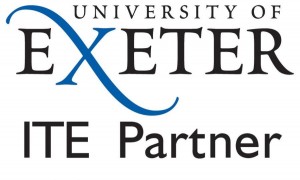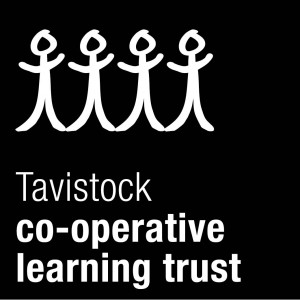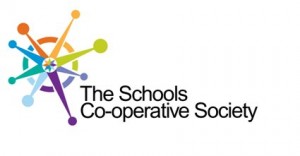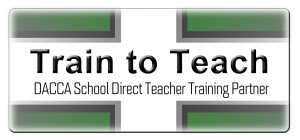Over the last term we have been using GSuite applications to attempt to assess the progress being made in online and remote learning across year groups. This has proven to be a blunt tool, but gives us a starting point for catch up planning that must be produced for children before September. Of course, for us simply catching up will not be good enough. Whichever plans we bring to life in September will inevitably be structured with the aim to accelerate learning. This is going to form a significant part of the Academy Improvement Plan which is currently under construction. To complement any one of our plans, yesterday we at last received a comprehensive set of guidance materials from the DfE to support full school opening.
The PM has made his position clear: schools need to open to all students in September and students must be taught (at KS4 and 5 at least) the whole curriculum. It is our job now to get on with this and ensure we meet the objectives. The DfE document states:
“Returning to school is vital for children’s education and for their wellbeing. Time out of school is detrimental for children’s cognitive and academic development, particularly for disadvantaged children. This impact can affect both current levels of learning and children’s future ability to learn, and therefore we need to ensure all pupils can return to school sooner rather than later.”
I completely agree with this statement. The DfE have explained that for the vast majority of children, the benefits of being back in school far outweigh the very low risk from coronavirus. As a result, we can plan for all students to return and start to reverse the enormous costs of missed education. This will be an important move back towards normal life for many children and families.
There are five areas to focus on in our September return plan:
- Actions to minimise risk – this will entail a review of our risk assessments in place for partial opening. We will need to follow the control guidance and reduce risks further. Hand washing and social distancing in year teams will form a part of this.
2. School operations – we have guidance on transport to implement, alongside giving consideration to the timetable, staggered breaks and avoiding contact between students. We know that attendance recording and tracking returns to normal, along with sanctions for non compliance. Uniform will return. This will help maintain standards and normality.
3. Curriculum, behaviour and pastoral support – this includes adjusting the examined curriculum in light of the new examination proposals, ensuring we are clear about new behaviour expectations, and returning to full compliance with SEND support. There will be an expectation that the new SRE programme will be introduced alongside new safeguarding expectations . This training will take place in professional development in September.
4. Assessment and accountability – Ofsted may drop into schools in the autumn term to consider the ways plans are working, but the full inspection process will not start again until January. There is a promise that the outcomes for 2020 will not be used for any accountability measure, so when we are next inspected conversations will centre around 2019 outcomes. That does not work in our favour given all indicators showed a positive progress measure for 2020! There is a consultation on exams and how they may function taking place until 16th July. Please take part. I sent the link in briefing notes today.
5. Contingency plans -these must be in place to protect students’ learning should a local lockdown be enforced, or the school be closed to a year group if we had multiple diagnosed cases of coronavirus. This will involve improving our remote learning offer and having it on standby.
All of this sounds challenging, but it is not really. We are never cowed under pressure at Tavistock College because we know we can solve any problem thrown our way. Between all of us, we have all the attributes and abilities to see off any threat. What we have learned over the last few months about schools is who the real heroes are, and which roles in the education system are, frankly, redundant. Non-productive workers have been exposed.
So while the changes ahead are challenging, it would be wrong to say they are stressful. Stress is a term that is bandied about quite a bit. Just as not all children have fallen behind as some have clearly
accelerated in different directions, then we must recognise that not all stress is bad. Jared Cooney Horvath indicates that good stress versus bad stress is differentiated by three factors: duration, intensity and interpretation. We have choices about how we manage stress: a determination to overcome, rather than to give in. This is learned behaviour, and it is what we should actively teach children. If the factors causing the stress are intense, then learning techniques such as deep breathing and muscle tension release will burn off the stress hormones (such as cortisol) that have flooded the brain such and prevented rational thinking. Time should be given for this, not avoided. Better that than subsequent actions that have consequences being excused because ‘I was stressed’. Stress is hard to justify if there is a way of avoiding it.
Stress is also about interpretation. Horvath encourages us to differentiate between ‘feelings’ and ‘emotions’. They are not the same thing. Emotions are driven by hormones and are hard wired and create physical sensations – things like a racing heart and tingly skin. Feelings are weaker as these are simply mental interpretations of emotions and we have absolute control over them. Horveth explains that the human body can only respond with a limited number of chemicals, and so the number of emotions we can have is limited (joy, surprise, fear, anger and so on) However, seeing that there is no limit to the ways in which we can interpret physical sensations, the number of feelings we can have is infinite (embarrassment, confidence, justice and so on). Whenever we select a feeling this choice is fed back to the brain and the body chemicals change accordingly.
This all matters because stress is a feeling, not an emotion. Stress (and all the pros and cons that go with it) is, by and large, a choice. Beyond the immediate threat response, most stress is activated after an individual interprets an event or emotion as stressful. Stress regulation techniques target the mind for this reason. They aim to change how an individual interprets a situation, shutting down the feedback mechanism . So, to be resilient (rather than giving in), we should think how we are interpreting events before we consider we are stressed.
Another part of the last three months has been the rise of surprisingly kind actions and gifts that have magically fallen into our laps. Firstly we have been given a beautiful grand piano from governor Tim Randell. It is very special, and Lily Randell is keen to continue to play it. It will be kept in the Hall. Earlier in the year Mrs Barker kindly funded an art workshop for students and earlier in the week generously made a very large donation to us that will be used to upgrade our IT equipment to a very high standard. The knock on effects are not just the improvement of facilities for students but staff computers can be upgraded. I am tremendously grateful to these people for their support and cannot thank them enough for what they have done to improve the learning environment at Tavistock College.
As we come to the end of another busy week, try to enjoy some time away from work at the weekend
















